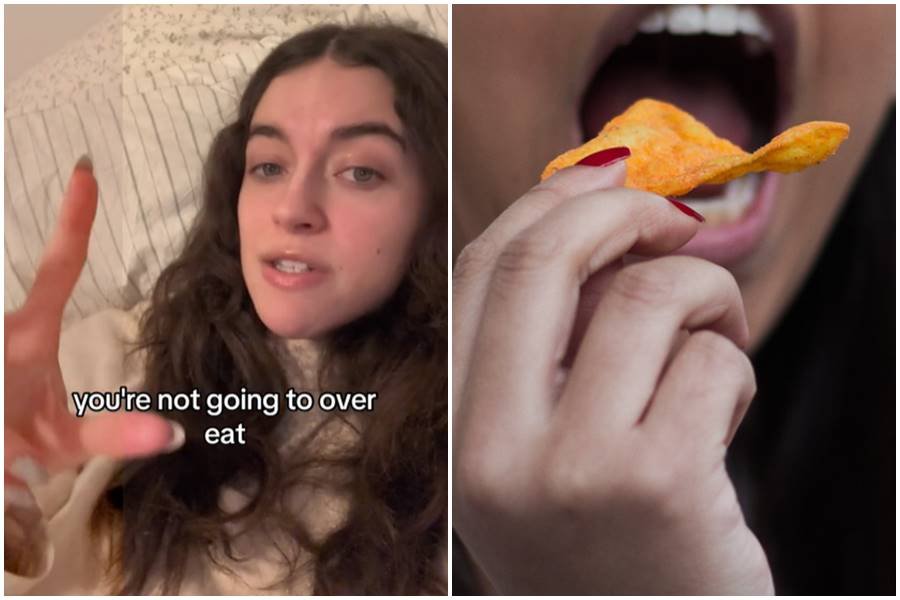Philosopher Eric Hoffer once said, “You can’t get enough of what you truly don’t need to make you happy.” His point is that we can have enough of the things that truly satisfy us, such as a healthy relationship, necessary material possessions, or nutritious food.
However, the things that can’t satisfy us, such as junk food, toxic relationships, or status symbols, will always leave us feeling hollow, no matter how much we indulge.
This idea has popped back into public consciousness, although with a slight twist by TikTokker Celeste Aria, who refers to her version of the idea as the “Dorito theory.” “One thing I can’t stop thinking about is called the Dorito theory,” she said in a post with over 1 million views. “I learned about this, and now I see everything a little bit differently.”
Aria is a vintage fashion influencer and musician.
“When you eat a Dorito and finish your bite, you’re not fully satisfied,” Aria continues. “It’s not the same as eating a steak or eating a really satiating food that’s high in protein where after your bite, you really feel sort of that fullness and that warmth of satisfaction.”
Have you heard of Dorito Theory?
“Eating potato chips is addictive because the peak of experience is kind of when you’re tasting it, and not after,” she continued. Put simply: “Experiences that aren’t truly satisfying are maximally addictive.”
The theory can even be applied to the platform where she went viral. TikTok may give us slight hits of joy (dopamine) as we scroll, but they can be few and far between. Eventually, when we put our phones down, the entire experience is little more than only a diversion. At worst, a waste of time and emotional energy.
The video received a lot of thoughtful responses on TikTok.
“In Gabor Maté’s book ‘In the Realm of Hungry Ghosts, ’ he says ‘You’ll never get enough of something that almost works,’” C. Badger wrote. “There’s a line in ‘The Picture of Dorian Gray’ that says something along the lines of ‘I love a cigarette it leaves one so unsatisfied,” and I think of it daily,” Louis said, referring to Oscar Wilde’s masterpiece.
“This is a unique TikTok video that is more like a steak than a Dorito. I feel I learned something and now I’m actually satisfied and don’t need to keep scrolling,” Stevesapao added.
Dr. Jamie Sorenson says that the Dorito theory makes much sense from a psychiatric perspective. “Dorito theory is consistent with other addiction and behavioral theories,” she tells Fast Company. “The more immediate [the reward], the more likely we are to repeat that behavior, whether it’s eating Doritos, using a drug of choice, or scrolling on social media.”
The psychological underpinnings that drive people to overeat, engage in toxic relationships, or fall into the darkness of addiction are more complex than any idea that can be explained in a 90-second TikTok video. However, Dorito theory is a good test for whether we should indulge in certain vices, possessions, or people.
If you keep repeating a specific behavior repeatedly and it always leaves you feeling hollow, why not substitute it for something that is ultimately satisfying instead? Obviously, that’s easier said than done when you have a big bag of chips in your lap.


































